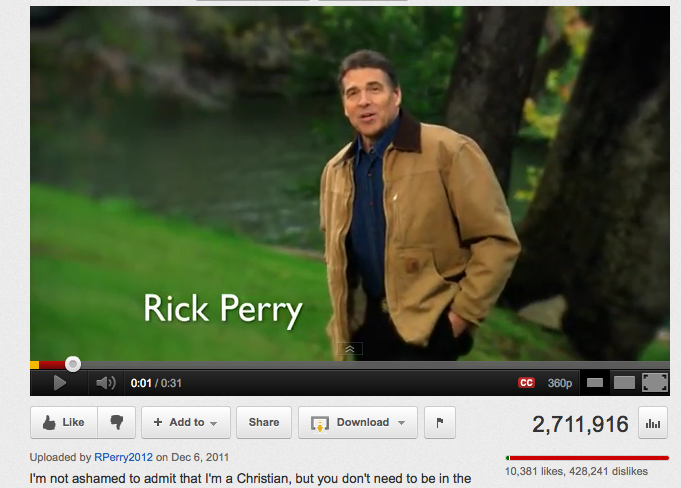
08 Dec Racism and peace in America
I made the mistake of looking at More Deleted Comments from White Readers on the United Black America website this morning. The question at the end, from the author, was, What’s your comeback to these comments?
My first instinct was none. Absolutely no comeback – just compassion. But can we simply sit in a state of compassion when faced with the virulence of violence that stems not just discursively, but also physically, legally, socially, economically? I realize that this is one site – one that probably attracts trolls (not purposefully, mind you, this is not a “blame the victim” moment – rather, there is a quiet part of my heart that is hoping that it’s just a few drunk idiots who had nothing better to do than leave ratty comments).
But this isn’t the only moment of virulent racism i’ve bumped up against in the past few weeks. In the last two weeks of the quarter, my students and i tackled very large questions around the War on Terror. I started to type “Muslim” and “Christian” into search engines. It dragged me down a horrifying rabbit hole of hate.
Do we continue to sit in peace? Can we?
My students and i struggled with this question in Week 8. We read Martin Luther King’s “Pilgrimage to Nonviolence” and three other works about women who are working toward peace (listed at the end of this post). What we came back to again and again was the question of what it means to enact peace and must there be violence to even bring issues to the forefront. But that can’t’ be it. It can’t just be that heinous acts of violence bring racism and other oppressive forms of marginalization (and hate, really) to the front stage – there is violence happening every day for a wide range of perceived differences, in all kinds of places.
Judith Butler (Precarious Life) tells us:
…the shared condition of precariousness leads not to reciprocal recognition, but to a specific exploitation of targeted populations, of lives that are not quite lives, cast as “destructible” and “ungrievable.” Such populations are “lose-able” or can be forfeited, precisely because they are framed as being already lost or forfeited; they are cast as threats to human life as we know it rather than as living populations in need of protection from illegitimate state violence, famine, or pandemics.
That anyone can call this a post-racial society is beyond comprehension when you consider these delightful campaign ads of 2010. How is it that we live in a society that can equate Christianity with Americanness and Americanness with hate. Take, for instance, the latest Perry campaign ad. (Or, as my partner just said, when i played it for him “Freaky-deaky! Have you got your [EU Country] citizenship paperwork finished?”)
Paul Farmer (2003) and others (Scheper-Hughes & Bourgois, 2004) have pointed to structural violences as equally demanding of our attentions as the political violences which, for so long, were deemed somehow more “worthy” of attention and analysis. Yet, structural violences hold every bit of the historical and social processes that are embedded in so-called political violences. It is not enough to narrate the violences so much as it is important to trace them back to the social, political and economic ideologies underpinning these violences – the construction of hate.
But sometimes, i wonder if tracing is enough… if protesting is enough…
other readings for week 8
Hays-Mitchell, Maureen. 2005. Women’s struggles for sustainable peace in post-conflict Peru: a feminist analysis of violence and change. InLise Nelson & Joni Seager, eds., A companion to feminist geography. Malden, MA: Blackwell Publishing, 590-606.
Berger Gould, Benina. Ritual as resistance: Tibetan women and nonviolence. In Marguerite R. Waller & Jennifer Rycenga, eds., Frontline feminisms: women, war, and resistance. New York: Routledge, 206-228.
Fluri, Jennifer L. 2006. “‘Our Website Was Revolutionary’: Virtual Spaces of Representation and Resistance.” ACME: An International E-Journal for Critical Geographers 5 (1): 89-111.
UPDATE
I would like to point to the number of “Likes” and “Dislikes” for this ad… i feel a little better about life, today:



Asad
Posted at 07:40h, 09 DecemberHey, glad you read United Black America. For all the deleted comments that I had, I feared that the site was a troll magnet. Far from what I intended it to be. What I do there is out of love for my people, not hate for anyone else, but others have shown that their love is predicated on how much they hate the “the other guys”. Psychotic-I know, but these same latent mental illnesses are present even in the powerful white men and women that make hire or non hire, and even life or death decisions with Black life, liberty, and pursuit held in the balance.
I published those comments to bring to light the fact that these people are not redneck trolls…they are sober and they are prolific. I can only hope they arent the majority. Black men and women are left with one option in the face of such hatred: self-love and self-reliance.
maoquai
Posted at 08:13h, 11 DecemberThanks so much, Asad, for your thoughtful comment. And thank you for reading.